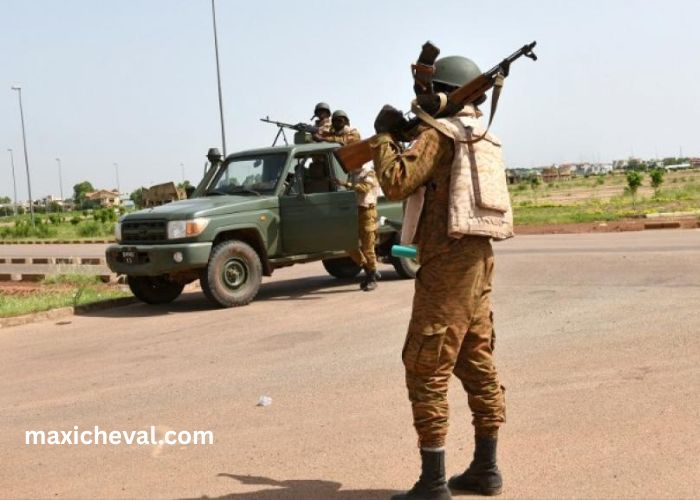Burkina Faso, a landlocked country in West Africa, has been navigating a complex political and social landscape in recent years. The nation’s journey has been marked by significant events that have shaped its current state. Understanding the Actualité Au Burkina Faso Aujourd’hui is essential for grasping the dynamics at play.
As of April 2025, Burkina Faso continues to experience a mix of challenges and progress. From political shifts to economic developments, the Actualité Au Burkina Faso Aujourd’hui provides a comprehensive view of the nation’s ongoing transformation.
What Are the Recent Political Developments in Burkina Faso?
In recent months, Burkina Faso has witnessed significant political changes. The military junta, led by Captain Ibrahim Traoré, has been at the forefront of these developments. Their governance has been characterized by efforts to stabilize the country amidst various challenges.
One notable event was the thwarting of a coup plot aimed at destabilizing the current regime. The junta claimed to have foiled a “major plot” that originated from the Ivory Coast, involving both current and former soldiers, as well as terrorist leaders. This incident underscores the fragile security situation and the junta’s commitment to maintaining control .
Additionally, the political landscape has been influenced by Burkina Faso’s decision to withdraw from the Economic Community of West African States (ECOWAS). This move has had implications for the nation’s diplomatic and economic relations within the region .
How Is the Security Situation Evolving in Burkina Faso?
The security situation in Burkina Faso remains a critical concern. The country has been grappling with insurgent activities, particularly in the northern regions bordering Mali. These groups have been responsible for numerous attacks, leading to significant displacement and humanitarian challenges.
In response, the government has implemented various measures to enhance security. These include military operations aimed at dismantling insurgent groups and restoring order. However, the effectiveness of these strategies has been a subject of debate, with some questioning the sustainability of such approaches .
Furthermore, the recent foiled coup attempt highlights the internal security challenges the country faces. The involvement of military personnel in the plot indicates potential fractures within the armed forces, which could have long-term implications for national security.
What Economic Initiatives Are Being Undertaken?
Economically, Burkina Faso is focusing on self-reliance and infrastructure development. A significant initiative is the establishment of the country’s first gold refinery. This project aims to process gold domestically, thereby increasing government revenue and creating employment opportunities. The refinery is expected to produce approximately 400 kilograms of gold daily, contributing to the nation’s economic growth .
Additionally, the government has suspended the issuance of export permits for small-scale gold production. This move is intended to combat illicit trade and ensure that gold exports are properly documented, thereby enhancing transparency and accountability in the sector.
These economic strategies reflect Burkina Faso’s efforts to harness its natural resources and build a more robust economic foundation. However, the success of these initiatives will depend on effective implementation and the resolution of underlying challenges.
How Is Education Being Addressed in Burkina Faso?
Education has become a focal point for the current administration. In a significant policy shift, the government has abolished school fees, making education free from primary to college levels. This move aims to increase access to education and promote literacy among the population.
The decision to eliminate school fees is part of a broader effort to invest in human capital and foster long-term development. By removing financial barriers, the government hopes to encourage higher enrollment rates and reduce dropout levels.
While this policy has been met with optimism, its success will depend on the government’s ability to address infrastructure challenges and ensure the quality of education provided. Sustained investment in the education sector will be crucial for realizing the intended benefits.
What Are Social and Cultural Developments?
Socially and culturally, Burkina Faso is experiencing a period of reflection and transformation. The government has emphasized the importance of national unity and patriotism. Initiatives promoting civic engagement and national pride have been introduced, aiming to strengthen the social fabric of the country.
Cultural heritage is also being highlighted as a means of fostering identity and cohesion. Efforts to preserve and promote traditional practices and values are being integrated into national policies, reflecting a desire to maintain cultural continuity amidst modernization.
These social and cultural developments indicate a recognition of the importance of societal well-being in the nation’s overall progress. By addressing social issues and promoting cultural heritage, Burkina Faso seeks to build a more inclusive and resilient society.
What Is the International Community’s Response?
The international community has been closely monitoring developments in Burkina Faso. Organizations such as the United Nations and the African Union have expressed concern over the security situation and the humanitarian impact of ongoing conflicts.
In response, various international partners have offered support in the form of humanitarian aid and development assistance. These efforts aim to alleviate the suffering of affected populations and contribute to the country’s stability.
However, the withdrawal of Burkina Faso from ECOWAS has complicated diplomatic relations. This move has led to a reevaluation of partnerships and has implications for future cooperation in regional initiatives.
Conclusion
The Actualité Au Burkina Faso Aujourd’hui presents a nation at a crossroads, navigating complex political, security, economic, and social challenges. While there are significant strides being made in areas like education and economic development, underlying issues such as security concerns and political stability remain pressing.




